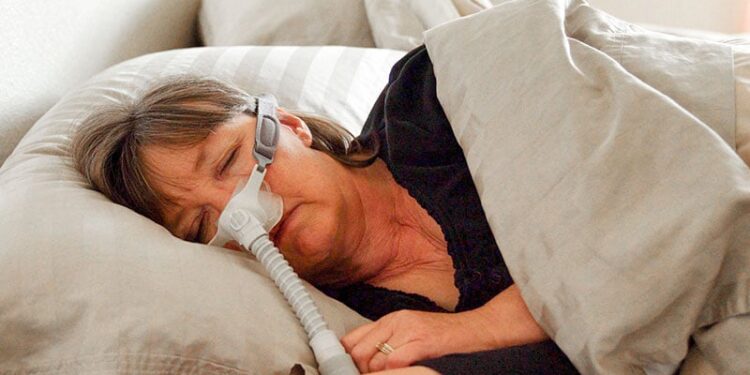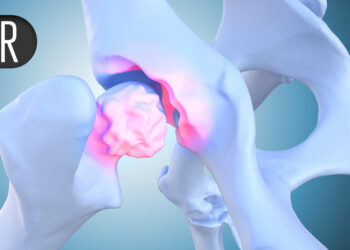TOPLINE:
Among normotensive patients with severe obstructive sleep apnea (OSA) and a dipping blood pressure (BP) pattern, continuous positive airway pressure (CPAP) prevented increases in BP over a 3-month follow-up period, with significant reductions in nighttime diastolic BP compared with usual care.
METHODOLOGY:
- Researchers conducted a randomized, prospective, controlled trial to assess the effect of CPAP on BP in normotensive individuals with severe OSA and a dipping BP pattern.
- Overall, 60 normotensive adult patients (mean age, 52.2 years; 66.7% men) with severe OSA (apnea-hypopnea index, ≥ 30 per hour) and a dipping BP pattern (reduction of ≥ 10% from daytime to nighttime BP) were randomly assigned to receive either CPAP or usual care for 12 weeks.
- Primary outcomes were changes from baseline to 3 months in ambulatory BP monitoring parameters: mean 24-hour BP; mean daytime and nighttime BP; 24-hour systolic and diastolic BP; and daytime and nighttime systolic and diastolic pressures.
- The secondary outcome was the change over 3 months in these ambulatory BP parameters according to adherence to CPAP, with a mean use of 4 or more hours per night defined as adequate adherence.
TAKEAWAY:
- Over the study period, the CPAP group showed no significant change in ambulatory BP parameters, whereas the usual care group showed significant increases in 24-hour systolic BP, mean nighttime BP, and nighttime systolic and diastolic pressures.
- The CPAP group had a significantly greater reduction in nighttime diastolic BP than the usual care group (mean difference, -3.4 mm Hg; P = .015), but no other BP parameters differed significantly.
- Participants with inadequate adherence to CPAP had significantly greater increases in mean nighttime BP, nighttime systolic BP, and nighttime diastolic BP than those with adequate adherence.
IN PRACTICE:
“Overall, this randomised trial provides novel insights into the potential benefits of CPAP therapy as a preventive measure for the development of hypertension. Further larger studies, including a greater proportion of women and potentially guided by polysomnography-based phenotypes, are needed to better understand the impact of OSA therapy in individuals with normal BP,” experts wrote in an accompanying editorial.
SOURCE:
This study was led by Adriano D.S. Targa and Gerard Torres, Translational Research in Respiratory Medicine, Hospital Universitari Arnau de Vilanova-Santa Maria, Biomedical Research Institute of Lleida, Lleida, Spain. It was published online on July 24, 2025, in European Respiratory Journal.
LIMITATIONS:
The single-center design potentially limited the generalizability of the findings. The sample size was powered to detect a difference of ≥ 3 mm Hg, but the true effect in normotensive individuals with OSA may have been smaller, leaving the analysis underpowered.
DISCLOSURES:
This study was supported by the Instituto de Salud Carlos III, co-funded by the European Union, Sociedad Española de Neumología y Cirugía Torácica, and Diputació de Lleida. Some authors disclosed receiving financial support from Instituto de Salud Carlos III, co-funded by the European Union, and the Catalan Institution for Research and Advanced Studies Academia programme. The authors reported having no potential conflicts of interest.
This article was created using several editorial tools, including AI, as part of the process. Human editors reviewed this content before publication.
Source link : https://www.medscape.com/viewarticle/continuous-positive-airway-pressure-may-prevent-rise-blood-2025a1000l6z?src=rss
Author :
Publish date : 2025-08-11 06:08:00
Copyright for syndicated content belongs to the linked Source.







